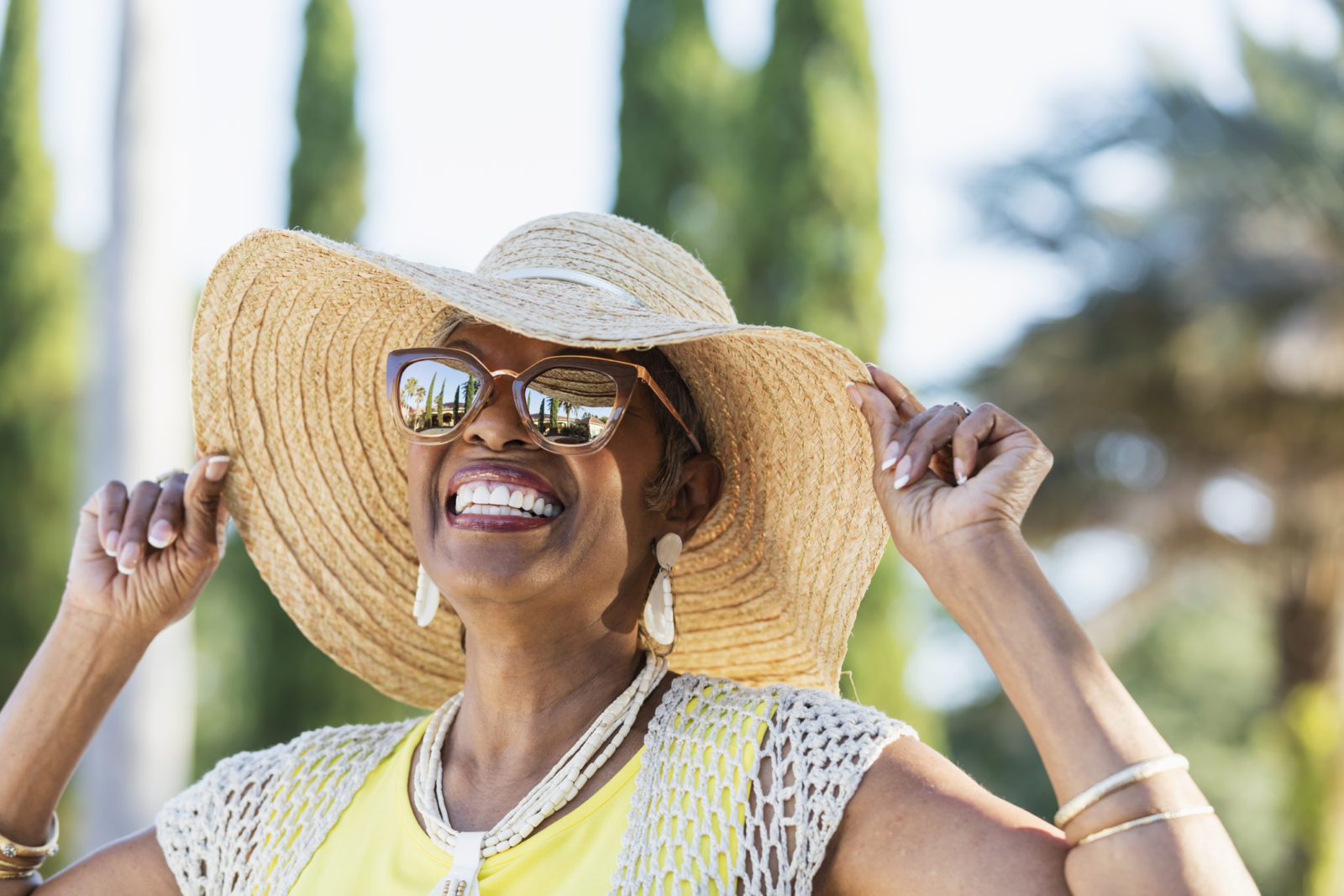In 2020, Senior Summer Safety Requires Extra Planning

Over the years, as public health and safety agencies have advised us to plan for disasters, “pandemic” was always on the list of possible emergencies, but seldom top of mind.
That has certainly changed! But as we are working to keep ourselves and vulnerable older loved ones safe during the COVID-19 outbreak, it’s important not to lose sight of other natural and manmade emergencies we might encounter.
We might think first of floods or storms. But did you know that the Centers for Disease Control and Prevention (CDC) lists extreme heat as the deadliest of all natural disasters in the U.S.? Heat waves take the lives of more people than all other natural disasters combined. And while our area doesn’t experience the extreme, prolonged heat events that happen elsewhere, we have had periods of heat in recent years that can be dangerous for older adults.
During heat waves, seniors are especially vulnerable
Extreme heat increases a senior’s risk of heart attack and respiratory problems. Older adults are at highest risk of serious and sometimes fatal heat-related illnesses such as heat exhaustion and heatstroke. Decreased blood circulation and a less efficient perspiration mechanism make it harder for their bodies to regulate temperature. Cardiovascular disease, kidney or lung problems, an unhealthy body weight and taking certain medications also factor in. And our thirst mechanism is less sensitive as we grow older, so it’s easier for elders to become dehydrated.
Social factors, too, raise a senior’s risk of heat-related illness.
Many seniors are unaware how dangerous high temperatures can be. Older homes weren’t designed for the warmer temperatures we experience today. Seniors may not know how to keep the interior of the home cool. Many don’t want to leave the windows open, fearing intruders. Without proper social support, they may not be able to get to a safe place. And this year, the situation may be especially dangerous as seniors are advised to continue social isolation.
The standard advice for keeping seniors safe during heat waves will be challenging in 2020. Many family caregivers will feel caught in a bind between protecting their loved one from the coronavirus and heat-related illness. Here are some tips:
- If your loved one’s home has air conditioning, be sure it is in good working order. If they don’t have central air, consider installing a window unit. Be sure the companies you deal with are following recommended infection-prevention guidelines for essential services providers. If your loved one is worried about energy costs, contact the local area agency on aging to find out about federal, state and local assistance programs.
- If the home is not air conditioned, instruct your loved one to open windows during early morning and evening hours to let in cooler air, to close drapes to block the sun, and to use fans to circulate air. If you are not meeting with your loved one in person at this time, call frequently during heat waves.
- Under normal circumstances, if a senior’s home is uncomfortably warm, they are advised to go to a place with air conditioning—the home of a friend or family member, to the library, a mall, senior center or other designated cooling shelter. This summer, many of these resources may be unavailable. Federal and state officials are working to develop a heat safety protocol for these circumstances. A LifeCare Advocates life care manager can help you create a plan and locate resources.
- It is often cooler outdoors in the shade than indoors. Be sure your loved one can go outdoors safely, maintaining the recommended distance from others. As a bonus, the coronavirus is thought to spread less easily outdoors, so at a safe distance, you may be able to enjoy a visit with your loved one in the yard.
- Encourage your loved one to drink plenty of fluids, even if they don’t seem thirsty. Fresh fruit also is a good source of fluids. Remind them that caffeine and alcohol can increase dehydration. (People who are on a fluid-restricted diet should consult their health care provider before changing their fluid intake.)
- Encourage your loved one to dress in lightweight, light-colored, loose-fitting clothes. Natural fabrics, such as cotton and linen, are coolest. Many synthetic fabrics trap heat and perspiration against the body.
LifeCare Advocates life care managers can help provide assistance in assessing your loved one’s summer safety needs and finding the resources for both them and for you in your role as caregiver. We can be involved as much or as little as you like, customizing our programs to fit you and your loved one’s specific situation.
Our team is here help address these types of complex issues during this epidemic. In addition to full assessments, we are currently offering virtual consultations to help families navigate during this difficult time. Contact us today.
![LifeCare Advocates [logo]](https://www.lcadvocates.com/wp-content/uploads/sites/270/2017/11/logo.png)